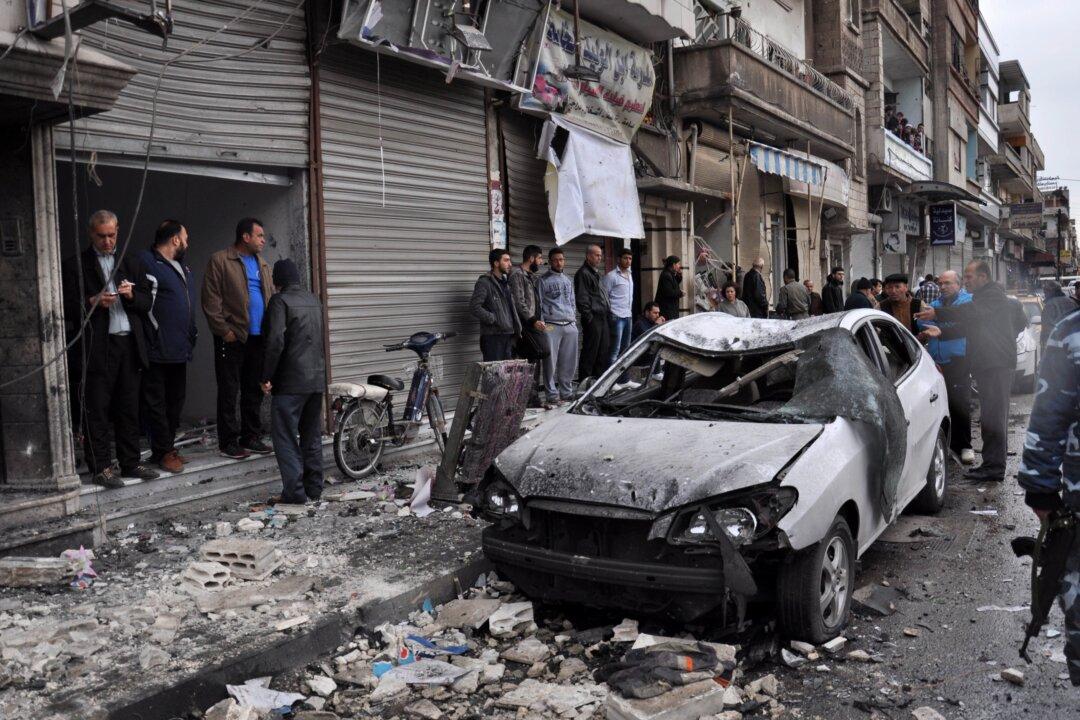BEIRUT—A suicide car bomber dispatched by the ISIS group struck near a police officers’ club in the Syrian capital on Tuesday, killing at least 10 people and destroying a number of cars.
Syrian state TV reported the toll and showed footage of the blast scene, including several damaged vehicles and a burnt-out car. The police officers’ club was next to a vegetable market.
The Britain-based Syrian Observatory for Human Rights, an opposition group that tracks the civil war, said the blast killed eight policemen and wounded 20.
The ISIS group claimed the bombing in a statement circulated by its followers on Twitter, saying it was carried out by a fighter known as Abu Abdul-Rahman al-Shami. It vowed more attacks.
The blast came a day after an international rights group said Syrian government forces and the Russian military have been carrying out daily cluster bomb attacks over the past two weeks in Syria, killing 37 people.
The Human Rights Watch report, released Monday, said that cluster munitions, which are widely banned, have been used in at least 14 attacks across five provinces since Jan. 26.
The attacks killed at least 37 civilians, including six women and nine children, and wounded dozens, HRW said.
Cluster bombs open in flight and scatter dozens of explosive munitions over wide areas. Some 98 States are party to a convention banning their use but several countries — including Syria and Russia, as well as the U.S., China and Israel — have not signed onto the ban.





